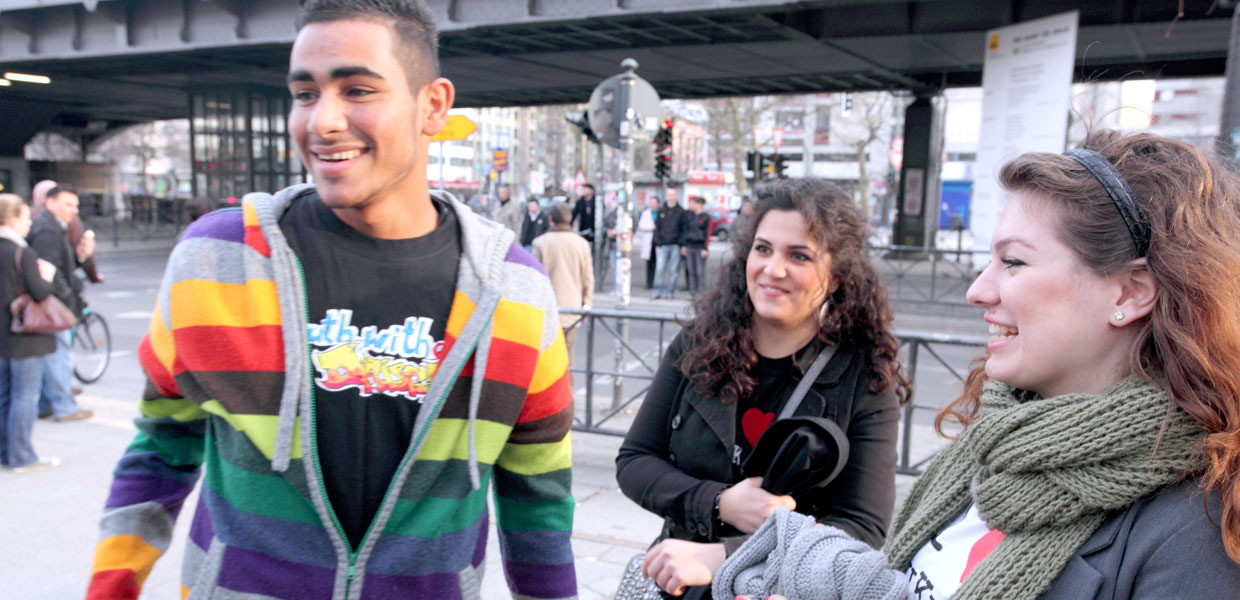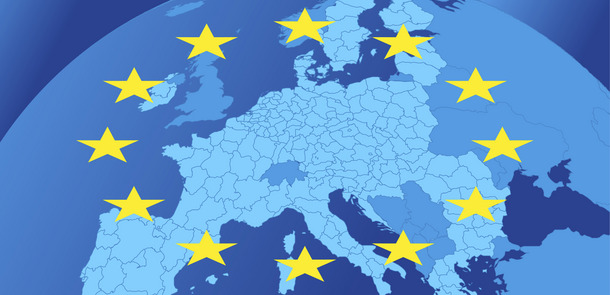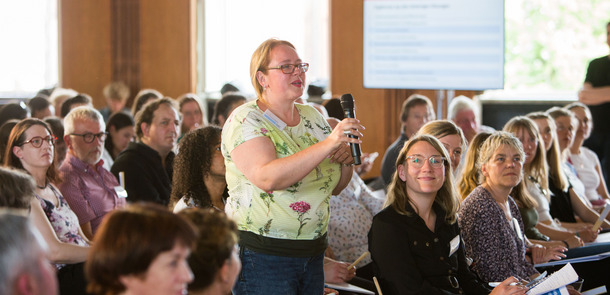Demographic change in Germany primarily manifests as a decrease in the size of the population and an increase in its age. In other words, Germany is becoming home to fewer people who on average are growing older. In addition, the composition of the population is changing as a result of immigration, which is necessary to ensure the country’s future. The result is a more diverse society. Whether and how the country’s diverse inhabitants can learn to live together as one can be seen most readily at the community level. Which strategies can cities and towns use to help people who are not German become part of German society?
Germany is a destination for immigrants, and has been so for quite some time. Social diversity is now normal in almost all areas of daily life. Homogeneity is becoming less and less prevalent, as a glance at the country’s preschools and schools shows.
Moreover, the integration of immigrants takes place at the local level. Germany’s cities and towns have long echoed the diversity of their inhabitants. History provides many examples that show local communities tangibly benefit from immigrants. It’s important for each community to take advantage of the potential offered by both natives and newcomers.
Diversity and a culture of welcome through appreciation: German society must emotionally accept increasing immigration. This acceptance will only occur if people have a favorable image of immigration and continue to experience it positively. This is already true in the areas of sports and culture, where such experiences have been commonplace – and often stirring. However, examples are most commonly found at the community level. At the same time, the idea that diversity can be a source of strength and an opportunity must become more firmly rooted in educational and business settings.
Where we’re going is important, not where we’re from.
Getting people to welcome newcomers and accept social diversity takes work. It does not happen automatically, it requires active effort.
To achieve this goal, a number of levels must be considered.
Diversity and a culture of welcome through immigration management: In light of demographic change in the resident population, Germany increasingly needs skilled labor from abroad. The perspective on integration policy needs to change and look to the future instead of the past. Germany needs to develop immigration options that are transparent and appealing. This would send the message that immigrants can remain in Germany permanently and become part of German society.
Diversity and a culture of welcome through equality: To change how it deals with diversity, Germany needs consistent policies that promote equality and prevent discrimination. This is imperative if people of non-German heritage are going to be visibly taking more responsibility in society. For example, Germany needs more civil servants, more business leaders and more policymakers of non-German heritage. This especially applies to local government.
A look at communities throughout Germany reveals an extensive mosaic of innovative measures designed to promote integration. Clear priorities and creativity are essential when solutions are being developed. As they search for ideas and practical responses, Germany’s communities are gradually realizing that integration needs an interdisciplinary approach, since it involves a gamut of policymaking areas in which key partners must be included.
Examples here include implementing a culture of welcome in the government agencies that deal with immigrants, ensuring educational opportunities for their children and strategically managing the proactive approach to diversity. The challenge is to establish integration as an interdisciplinary issue and a policymaking goal in the community.
· Local data on integration is available (in German) at Wegweiser-Kommune.de
· Examples of local integration policies are available (in German) in the section Demographie.konkret at Wegweiser-Kommune.de
For indicators and other data relating to specific communities in Germany, please visit www.wegweiser-kommune.de




